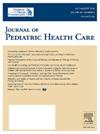研究加纳父母对 R21/Matrix-M 疟疾疫苗的犹豫态度。
IF 2.5
4区 医学
Q2 HEALTH POLICY & SERVICES
引用次数: 0
摘要
导言:本研究旨在评估加纳家长对新型疟疾疫苗 R21/Matrix-M 的态度及其相关决定因素:方法:2023 年 7 月至 8 月,采用滚雪球和便利抽样技术,使用家长对儿童接种疫苗的态度量表,进行了一次匿名横断面调查:结果:共纳入 818 人,其中 67.2% 为女性,年龄中位数为 32 岁,29.01% 的人对是否为子女接种疫苗犹豫不决。居住在森林中、孩子年龄较小、最小的孩子年龄为 1-3 岁、放弃产前护理或计划接种疫苗、不愿意为孩子接种 R21/Matrix-M 疫苗的人对接种疫苗持犹豫态度。然而,医护人员、有亲属死于疟疾的人以及给孩子接种过疟疾疫苗的人则不那么犹豫:讨论:大部分家长表示愿意为子女接种疟疾疫苗。要解决家长犹豫不决的问题,需要针对已发现的因素实施干预计划,并提高家长的知识水平。本文章由计算机程序翻译,如有差异,请以英文原文为准。
Examining Vaccine Hesitancy Among Ghanaian Parents for the R21/Matrix-M Malaria Vaccine
Introduction
This study aimed to assess Ghanaian parental attitudes toward a new malaria vaccine, R21/Matrix-M, and its associated determinants.
Method
A cross-sectional survey was conducted anonymously in July and August 2023 using snowball and convenience sampling techniques, using the Parental Attitude about Children Vaccination Scale.
Results
A total of 818 individuals were included, 67.2% were females, their median age was 32 years, and 29.01% were hesitant to vaccinate their children. People living in forests, with younger children, having the youngest child aged 1–3 years, skipping antenatal care or scheduled vaccinations, and not being willing to give the R21/Matrix-M vaccine to children, were vaccine-hesitant. However, healthcare workers, those having a relative who died from malaria, and those who vaccinated their child against malaria were less hesitant.
Discussion
A large sector of parents expressed willingness to vaccinate their children against malaria. Addressing parental hesitancy requires intervention programs targeting the identified factors and enhancing parental knowledge.
求助全文
通过发布文献求助,成功后即可免费获取论文全文。
去求助
来源期刊

Journal of Pediatric Health Care
NURSING-PEDIATRICS
CiteScore
3.40
自引率
10.70%
发文量
140
审稿时长
24 days
期刊介绍:
The Journal of Pediatric Health Care, the official journal of the National Association of Pediatric Nurse Practitioners, provides scholarly clinical information and research regarding primary, acute and specialty health care for children of newborn age through young adulthood within a family-centered context. The Journal disseminates multidisciplinary perspectives on evidence-based practice and emerging policy, advocacy and educational issues that are of importance to all healthcare professionals caring for children and their families.
 求助内容:
求助内容: 应助结果提醒方式:
应助结果提醒方式:


